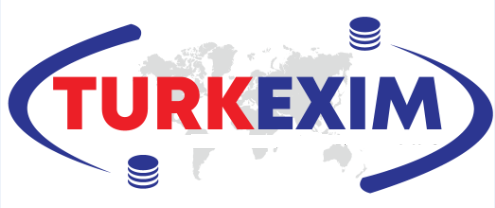FABRIC | INDUSTRY REPORT | TÜRKİYE
Having the largest share in Turkish industrial production, the textile industry is one of the
first established industries in Turkey. The sector comprises 20 thousand manufacturing
companies and employs about 400 thousand employees. The fabric industry as a subsector
of the huge Turkish textile industry has improved significantly in recent years, since
the Turkish clothing and home textile industries have had a significant role in the world’s
clothing and home textile markets in the last two decades.
The Turkish fabric finishing sector has a level of processing all the capacity of grey fabric.
This sector is equivalent to the European Union in terms of processing capacity, modern
technology, qualified workforce, and especially product quality.
Today, the Turkish fabric industry has competitive advantages in international markets,
particularly in terms of its technology, extensive product range and the quality, design and
creativity of its products. In addition to its well-developed structure, it employs a highly
skilled labor force. Also, the Turkish fabric industry has great flexibility and ability to
modernize its production, and adapt itself to new technologies. This ability allows the
industry to reduce its reaction time to changes in consumer demand in international
markets. Thus, the Turkish fabric industry satisfies its customers by meeting all their needs
with the quality of its products together with its strong service ability of quick response and
on-time delivery. All these features have enabled Turkish fabric manufacturers and
exporters to earn a good reputation in international markets.
PRODUCTION
The Turkish fabric industry, which produces almost all kinds of fabrics for apparel, home
textiles, upholstery and technical applications, has a well-developed structure, especially in
production based on cotton, wool and man-made raw materials.
A large amount of fabric production is based on cotton. The fabric industry based on cotton
consists of two segments. One is composed of large scale companies which have
production facilities integrated vertically in all stages of fabric production, from fiber
processing, spinning and weaving to dying, printing and finishing. Many of them also have
manufacturing facilities for ready-made goods such as clothing or home textiles. The other
one is composed mainly of non-integrated companies on a small scale. These companies
cooperate with the Turkish finishing industry, which is one of the vital sub-sectors of the
Turkish textile industry.
The sector meets its raw material needs mostly from domestic sources. As an important
world cotton grower, Turkey ranked sixth in the world production of cotton with around 954
thousand tons in 2010/11 term. Although Turkey is among main cotton growers in the
world, domestic cotton does not meet the production demand of the country. Therefore,
Turkey is the third largest cotton importer after China and Bangladesh.
As well as the cotton textile industry, the Turkish man-made textile sector is also a welldeveloped
industry. Having the eighth largest capacity of synthetics in the world, Turkey
has a large production potential for synthetic fabrics based especially on 100% polyester
and polyester blends with cotton, viscose, nylon, polyamide, wool, linen and/or multiblends
of them. 62% of the companies in this sector have finishing plants and 75% of their
raw material needs are met by domestic production.
Being the third largest mohair producer in the world, Turkey also has a strong wool
industry. The majority of wool products meet the demand of clothing producers and
exporters.
The fabric mills are mainly concentrated in Istanbul, Bursa, Adana, Denizli,
Kahramanmaras, Izmir, Gaziantep, Tekirdag, Kayseri and Usak. Many of the integrated
mills are located in Istanbul, Bursa, Kahramanmaras, Adana and Gaziantep.
Today, Turkish fabric manufacturers are aware of the increasing trend in international
markets for healthier and more environment-friendly products, and have adapted
themselves to these developments. Many Turkish fabric manufacturers have ecological
labels for their products. Many of them have best known eco-labels like Oeko-Tex
Standard 100, Organic Exchange, GOTS, etc.
Turkish fabric manufacturers are aware of the importance of quality, and many have
national and international quality certificates.
EXPORTS
The total value of fabrics exported in 2011 was about US$ 4.6 billion. The main products
exported in 2011 were knitted fabrics, woven synthetic fabrics, and woven cotton fabrics.
The export values of knitted fabrics, woven synthetic fabrics, and woven cotton fabrics
were about US$ 1.5 billion, US$ 1.3 billion and US$ 1.2 billion respectively.
USEFUL LINKS
Istanbul Textile and Apparel Exporters’ Associations
www.itkib.org.tr
Aegean Exporters’ Associations
www.egebirlik.org.tr
Uludağ Exporters’ Association
www.uib.org.tr
Denizli Exporters’ Association
www.denib.gov.tr
Mediterranean Exporter Associations
www.akib.org.tr
Southeast Anatolia Exporters’ Associations
www.gaib.org.tr
Osmanbey Textile Manufacturers Association
www.otiad.org.tr
Laleli Industrialists and Businessmen Association
www.lasiad.org.tr
Merter Industrialists and Businessmen Association
www.mesiad.org.tr
Turkish Home Textile Industrialists’ and Businessmen’s Association
www.tetsiad.org
Turkish Textile Employers’ Association
www.tekstilisveren.org
The Associations of Denim Industrialist’s and Businessmen’s of Turkey
www.denimder.org.tr/eng/
TAGS: Turkish fabrics sector , buy fabrics from Turkey , import fabrics from Turkey
Yorumlar - Yorum Yaz












